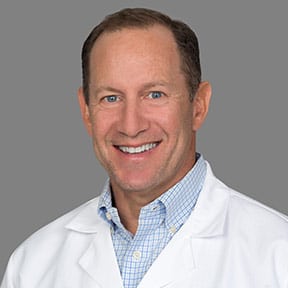While Fentanyl continues to dominate headlines, there are equally destructive drugs emerging that threaten the vulnerable. Also known as “tranq” or “tranq dope,” Xylazine has found its way into the illicit drug supply. Xylazine is often mixed with already dangerous substances like heroin, fentanyl, and cocaine. Let’s delve into the details of xylazine, its risks, and the impact it’s having on public health.
What Is Xylazine?
Xylazine was originally developed for veterinary use. It serves as a sedative, anesthetic, muscle relaxant, and analgesic for animals such as horses and cattle. Veterinarians often combine it with ketamine during anesthesia procedures. Xylazine is also used to induce vomiting in cats.
Xylazine is not approved for human use. Despite this, it has infiltrated the illegal drug market, leading to serious consequences. It is most often used as an additive to Cocaine, Fentanyl, or Heroin.
Not surprisingly, the majority of overdose deaths involve the mixture of Xylazine with Fentanyl. Chronic Fentanyl users claim they can tell when Xylazine or “tranq” is mixed with Fentanyl. They claim it “stretches out” a Fentanyl high. Xylazine gives a more pronounced hypnotic state when combined with Fentanyl or Cocaine. With increased amounts cut into other drugs, , users experience blackouts with complete amnesia not typical of Cocaine, Heroin or Fentanyl use alone.
The lacing of Cocaine, Heroin, or Fentanyl not only enhances hypnotic/sedative effect and potency, but the practice also increases the street value as Xylazine blending adds weight to these illicit drugs.
Xylazine is a potentially deadly and destructive agent.
Health Risks:
- Sedation: When used in humans, xylazine induces sedation.
- Breathing Difficulties: It can lead to dangerously low blood pressure and slowed heart rate.
- Wounds and Infections: Xylazine can cause wounds that become infected.
- Withdrawal Symptoms: Abrupt cessation can result in severe withdrawal symptoms.
- Fatality: In extreme cases, Xylazine overdose can be fatal.
The Opioid Crisis Connection:
- Emerging Threat: The White House’s Office of National Drug Control Policy has declared fentanyl mixed with xylazine an emerging threat.
- Increasing Presence: Xylazine has been detected in drug samples across the United States, with the South experiencing the largest increase.
- Overdose Impact: In some areas, xylazine’s involvement in drug overdose deaths has surged from less than 1% in 2015 to nearly 7% in 2020 with the combo of Fentanyl and Xylazine being the deadliest.
The Flesh-Eating Side Effect
Beyond its role in overdose deaths, xylazine leaves users with more than just a high. It can cause severe skin ulcers, soft-tissue wounds, and necrosis (premature skin death). The combination of Fentanyl and Xylazine is particularly prone to this worrisome side effect. The exact mechanism of why this occurs is poorly understood.
Reducing Harms and Raising Awareness
- Education: Public awareness campaigns are crucial to inform drug users about the dangers of xylazine.
- Harm Reduction: Those who use illegal drugs should be vigilant and seek help if they suspect exposure to xylazine.
- Community Efforts: Communities must collaborate to address this growing threat and prevent further casualties.
In conclusion, xylazine’s unexpected journey from veterinary clinics to the streets underscores the need for vigilance, research, and intervention. As we grapple with the opioid crisis, understanding the role of xylazine is essential to saving lives and safeguarding public health.
Dr. Kenneth Spielvogel is a board-certified Physician with a focused interest in addiction medicine. He is dedicated to providing comprehensive and compassionate care to patients throughout all stages of life. With nearly 30 years of experience, he combines his expertise with a genuine warmth and attentiveness, making him a trusted choice for patients seeking personalized healthcare. From Inspiration to Dedication: Inspired by his father’s career in medicine, Dr. Spielvogel followed his own path, choosing to specialize initially on women’s health. Seeing the devastation of drug and alcohol use disorders on his patients, he focused his continuing education on all aspects of addiction medicine. He continues to integrate this knowledge into both inpatient and ambulatory care.
Areas of Expertise:
Dr. Spielvogel offers a wide range of services, including:
- Menopause and hormone replacement therapy (HRT)
- Family planning and infertility
- Abnormal bleeding disorders
- Minimally invasive surgery and robotics
- Preconception counseling and prenatal care
- Annual exams and preventative care
Full scope treatment of addiction and recovery A Personalized Approach:
Dr. Spielvogel believes in building strong relationships with his patients. He takes the time to understand their individual needs and concerns, tailoring his approach to ensure they feel heard and supported. He also speaks fluent Spanish, enabling him to serve a diverse community. Beyond the Exam Room: Dr. Spielvogel is passionate about empowering patients to make informed decisions about their health. He enjoys counseling patients on healthy lifestyle choices, including weight management, and stays up-to-date on the latest advancements in all aspects of healthcare.
Education and Affiliations:
- Medical Degree: George Washington University School of Medicine
- Residency: University of Colorado Health Sciences Center
- Board Certification: American Board of Obstetrics & Gynecology
Affiliations:
MemorialCare Medical Group Long Beach, Pediatrix Medical Group Consultant and clinical care member for both One Method and Carrara treatment centers




